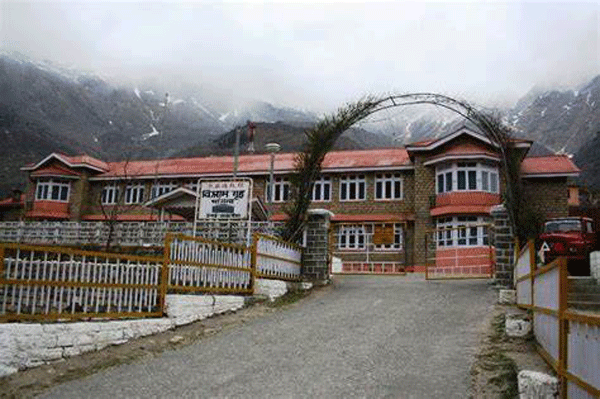
Photo used for indicative purpose only. Source: Internet
Mandi, Apr 19
Proverbial saying that’ Necessity is the mother of invention’ comes true as scientists
from Indian Institute of Technology Mandi have designed antimicrobial, reusable material face masks, PPE kits and other protective equipment to fight with the Covid pandemic.
A study published by the university said that special fabric mask or PPE kit could
achieve this life saving objectives by adopting nanometre-sized sheets of molybdenum
sulphide which kill viruses and bacteria by acting as tiny knives to pierce their membranes.
Paper on this development has been published by Jaiswal along with research scholars Praveen Kumar, Shounak Roy, Ankita Sarkar of the university in applied Materials and Interfaces journal of the American Chemical Society.
Assistant professor at the School of Basic Sciences of IIT Amit Jaswal said that modified fabrics showed excellent antibacterial activity even after 60 cycles of washing. Biological waste generation can be reduced by making the masks reusable in this way,” he added.
Assistant professor at the School of Basic Sciences of IIT Amit Jaswal said that modified fabrics showed excellent antibacterial activity even after 60 cycles of washing. Biological waste generation can be reduced by making the masks reusable in this way,” he added.
The improperly disposed-off PPEs are a source of Covid transmission, and having reusable
antimicrobial masks can help circumvent this risk.
In additional to puncturing microbial membranes, the nanosheets of molybdenum sulfide also enable disinfection when exposed to light, according to the researchers.
How material works
Molybdenum sulphide absorbs solar light and converts it into heat, which kills the microbes. “Within five minutes of solar irradiation, all the MoS2-modified fabrics showed 100 percent killing of both E. Coli and S. Aureus,” the authors noted in their study.
Recyclable and long lasting
“Thus, merely hanging out the masks in bright sunlight can clean the mask and make it ready to wear again. These masks can also filter more than 96 percent of particles that are in the size range of the coronavirus without compromising on the breathability of the fabric.
The proposed materials can also be used to fabricate scenes or sheets for creating makeshift isolation wards or containment cells,” summoned Prof. Jaiswal.
















